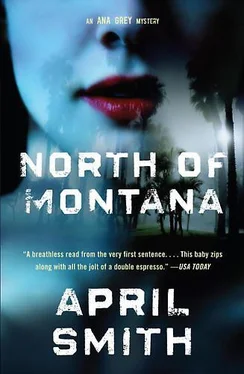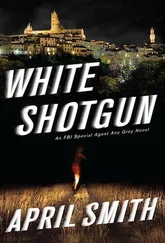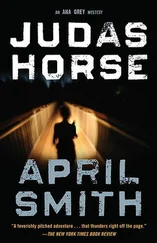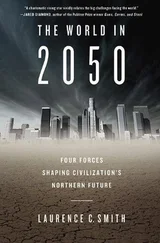I don’t respond.
Mike Donnato puts his arms around me and I lean back against his chest, watching the long white line of the breaking surf against a charcoal sea.
“Are you okay?”
I shake my head no. Not okay.
“What can I do?” he asks.
I turn to him and we embrace fully, emotionally.
“I’m here for you,” he whispers.
I find his eyes in the dark. They are full of questions.
Finally I say, “I can’t.”
“Why?”
“There’s always a betrayal in it.”
I pull away and don’t look back. Thirty minutes later I am at the Malibu station, making my statement.
SAC ROBERT CALLOWAY holds a news conference at our office to disclose the details of Jayne Mason’s death. He orchestrates it carefully, making sure the coroner himself is there and the L.A. County Sheriff and that they both take the proper tone of respect for the loss of an American icon. One of those doyennes of MGM musicals whose name I never remember — the one who’s eighty years old and still wears a pixie haircut — reads a statement announcing the creation of the Jayne Mason Fund for Gun Control. The press gets what it wants and treats Galloway well. He leaves the podium looking quite pleased.
Under the guise of being a law enforcement officer, Barbara Sullivan is able to attend the funeral — or at least claim a good spot alongside the security force with a clear view of the front steps of the Beverly Hills Presbyterian Church. She says the high point was seeing Sean Connery, but there were enough Hollywood celebrities in attendance to stoke the tabloids for months. As in major presidential events, the media held a lottery to determine which journalists would be admitted to the sanctuary. No cameras were allowed but, from the plethora of “insider” photographs of the rose-strewn coffin, grieving ex-husbands (including the used car king), children, and grandchildren, one may conclude that plenty of invited mourners were packing Instamatics inside those black Chanel bags.
Barbara returns from the funeral looking wan.
“I was a witness to history,” she declares, busying herself hanging up the jacket of her dark gray suit, checking phone messages, and finally pouring her famous cinnamon brew into two dark blue mugs with the FBI shield.
“No wise-ass remarks?”
In better times I would tell her that her attachment to Jayne Mason is pathological, but I haven’t the energy. I just shake my head.
“What’s the matter with you?” she asks.
“I don’t know. I just feel like crying all the time.”
I shrug. Barbara’s blue eyes are kind. “It was a trauma.”
“That part didn’t bother me.”
“Oh come on, seeing somebody get shot? You should talk to Harvey McGinnis.”
“You’re not the first person to suggest that.”
“So?”
“I don’t need a shrink.”
“That’s what Patty McCormack said in The Bad Seed.”
She sips coffee. I have no interest in mine.
“Have you been swimming?”
“No.”
“At least go swimming.”
“It’s hard enough just to get out of bed.” I stand. “Thanks for the java.”
Big sister Barbara says, “This isn’t good.”
“I’ll get through it.”
Diligently I continue to work through the pile of bank robbery reports, taking refuge in the drone of it. I meet Donnato’s new partner, Joe Positano, one of those wound-up gung-ho jocks with a nerdy square face and ultrashort hair who thinks he’s going to save the world. I thought I’d be jealous but every time he and Donnato leave the office it’s a relief, until finally Donnato corners me at the front desk.
“You’ve been acting like this is some kind of a high school flirtation.”
“That’s ridiculous.” I squeeze past him. “Excuse me, I have to buy a Barbie doll.”
He wraps his fingers around my neck in a relatively playful way and tugs me out the side door as if I were a wriggling puppy.
But when we’re alone in the echoing stairwell the fun ends. We don’t kiss, we don’t even come close, in fact stand as far apart as possible, as if the air separating us had suddenly taken on the density of the atmosphere of Jupiter.
“I’m leaving Rochelle. We’ve been talking about it for a long time.”
“Oh Jesus, Mike.”
“It’s going to be shit, pure shit for the kids.”
He draws a sleeve across his eyes. Now mine are wet.
“Don’t do this for me.”
“Who said it had anything to do with you?”
I move farther away, so my back is against the rough cinder-block wall.
“I told you, I can’t. Whether you’re married or not.”
A strange indoor wind is blowing up the stairwell creating an unsettling moan.
“So everything that’s been going on is just — nothing.”
Aching, “Not at all.”
“Then what?”
He has asked but now averts his eyes, undefended.
“I don’t believe it’s possible.”
“What isn’t?” He gives a small laugh. “Happiness? Trust? The future of the world? What?”
Then he sees only silence.
“Got it,” he says finally.
I believe the best course of action is to leave it as it is.
“If any of this between you and Rochelle was my fault, I am truly sorry.”
I hurry down the stairs.
• • •
The alkies and I are all lined up in Thrifty’s on Santa Monica Boulevard in North Hollywood. They’re buying $3.95 pints of gin to get them through the night and I’m holding a pack of little plastic infantrymen for Cristóbal and a Barbie doll for Teresa, wishing I had the body chemistry to be able to get sloshed and like it. There’s a constant pain in my chest, as if someone had buried a pickax in there, and during the most banal conversations, like this exchange with Hugo the checkout guy (“Here you go.” “Thanks”), tears leak unaccountably from my eyes.
I make it through the gauntlet of street beggars blocking the way to the car and slam the door, as if to keep the vapor of their destitution out. Starting the engine, I make a resolution to leave all this behind. When I see Teresa and Cristóbal I want to be upbeat, a role model, the one who shows them the positive side, the satisfactions and achievements of working hard in this society.
Nobody answers the intercom but the lock on the lobby door is broken, so I pass under the organ-pipe sculpture up the metal stairs. It is six thirty at night and I’m hoping Mrs. Gutiérrez is at home serving a nutritious dinner, thereby not occasioning a call to Children and Family Services, but the pounding music that grows louder as I approach is stirring up an uneasy feeling.
After I knock and give it a few good kicks, the door is finally opened by a belligerent, overweight teenage boy wearing a Hawaiian shirt and smoking a cigarette.
“What’s going on?” he demands.
“I’m looking for Mrs. Gutiérrez.”
“She don’t live here.”
I block him from closing the door.
“What the fuck?”
I badge him. “FBI. Can I come in?”
There are five or six other boys sprawled around the floor playing a video game, surrounded by cigarette smoke blended with who knows what else. They look at me and their eyes slide sideways and they joke to one another in Spanish. I take an aggressive posture and keep close to the door.
“Where’s the woman who lived here?”
“I told you, lady. She moved away.”
“Whose apartment is this? Where are the adults?”
“It’s my place,” says the smallest one, wearing red mirror sunglasses and working the controls. “Actually, my mom’s. She’s at work. The lady who lived here went back to El Salvador.”
“I need to talk to you.”
“Sure.”
Читать дальше












